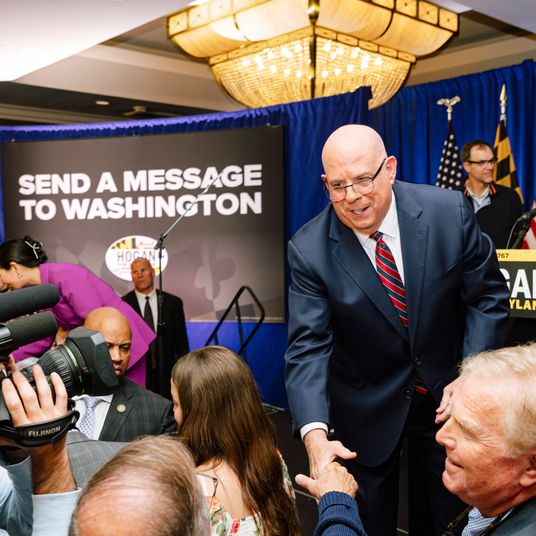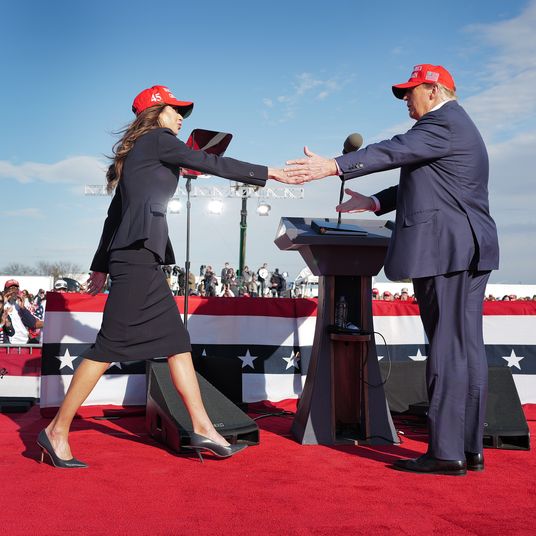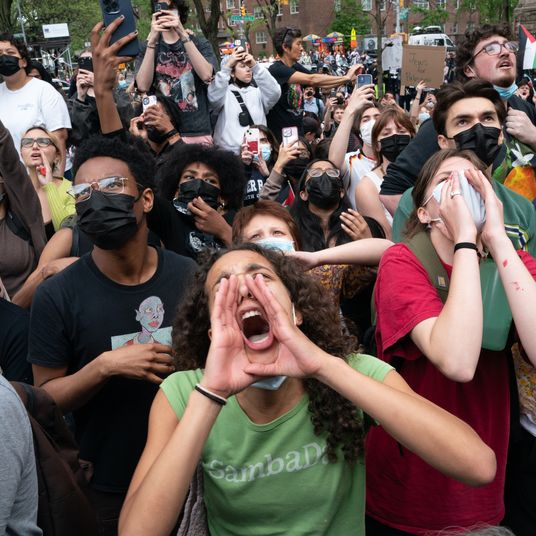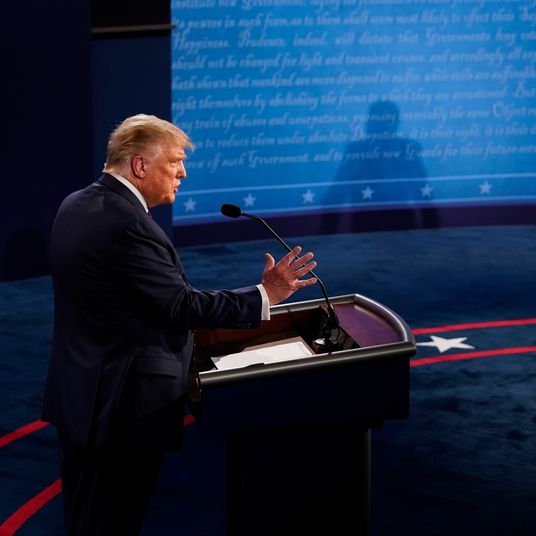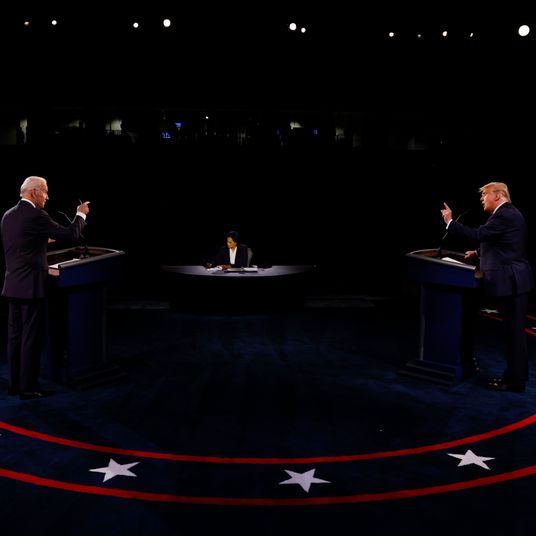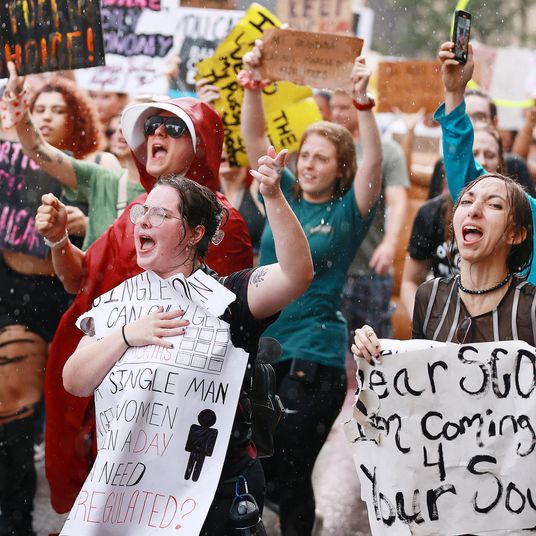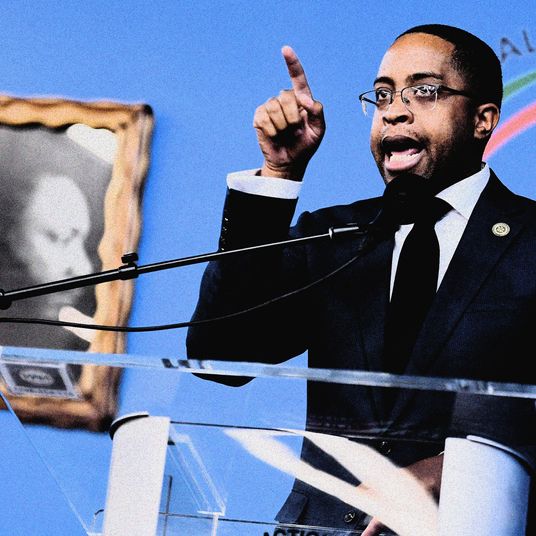
There’s not much question that the Republican Party has benefitted politically from the multifaceted tragedy unfolding in Gaza since Hamas attacked Israel in October. It’s very much become Joe Biden’s war in the eyes of many agonized Americans, particularly younger people. They believe the president has given a green light to Israeli operations that ostensibly target Hamas, but are taking a savage toll on the civilian Palestinian population. It’s not the only reason for the 81-year-old Democrat’s shockingly low levels of support among what was a huge and hugely important element of his electoral coalition in 2020. But clearly support for a permanent cease-fire is high among under-30 voters.
But Republicans may now be in the process of squandering whatever gains they made from Biden’s Middle East problem.
In the heat of the current conflict over U.S. policy, it’s been lost on many Americans that the GOP has in recent years been the party aligned uncritically and vociferously with the most belligerent expansionist elements in Israeli politics: typically opposing any two-state solution to the Israeli-Palestinian conflict, supporting the settler movement, encouraging Israeli saber-rattling toward Iran, and celebrating the fractious political career of Bibi Netanyahu. This tendency, heavily influenced by the power of conservative Evangelicals in the GOP, predated Donald Trump (in the 2012 election, Mitt Romney attacked then-President Barack Obama repeatedly for allowing “daylight” to appear between the U.S. and Israel on various policy issues). But Trump continued this tradition, developing a tight personal relationship with Netanyahu (marred temporarily by Trump’s anger at Bibi for acknowledging Biden’s 2020 victory), ignoring Palestinian national aspirations, and fulfilling such long-term conservative goals as the relocation of the U.S. embassy from Tel Aviv to disputed Jerusalem.
So it’s probably not an accident that Trump has pursued what looks like strategic silence on the Israel-Hamas War, and for the most part Republicans have followed him. It makes sense politically: Let Biden take all the heat from both sides in the conflict, and do nothing to discourage the steady drift of voters angry at Biden’s role in the war away from the Democratic Party.
Now this silence seems to have come to an abrupt end, signaled by Trump’s explosion of invective triggered by Chuck Schumer’s call for new Israeli elections to oust Netanyahu, as the Associated Press reported:
“I actually think they hate Israel,” Trump responded to his former aide, Sebastian Gorka. “I think they hate Israel. And the Democrat party hates Israel.”
Trump, who last week became the Republican Party’s presumptive nominee, went on to charge: “Any Jewish person that votes for Democrats hates their religion. They hate everything about Israel and they should be ashamed of themselves because Israel will be destroyed.”
That Trump presumed to challenge the religious authenticity not only of the highest-ranking Jewish politician in U.S. history, but of millions of Jewish Democrats, is both shocking and unsurprising. But his outburst appears to have unleashed pent-up GOP sentiment for maximum support of Israel’s leadership and its retaliatory war. If Democrats don’t love Bibi, Republicans want to make it clear they really do, notes the Washington Post:
Israeli Prime Minister Benjamin Netanyahu joined Senate Republicans via live video conference Wednesday, his face and booming voice beamed into the party’s weekly closed lunch meeting as he criticized the Senate’s Democratic leader, in the latest display of deepening partisan politics around U.S.-Israel policy.
A week after Senate Majority Leader Charles E. Schumer (D-N.Y.) chastised Netanyahu and called for a new election in Israel, and amid mounting criticism from Democrats of Israel’s war in Gaza, congressional Republicans are seeking to amplify their party’s unconditional loyalty to the Jewish state, in contrast with the party that has long attracted the most Jewish voters.
House Speaker Mike Johnson quickly joined the Netanyahu parade as well, and wants to go very public with his party’s embrace of the embattled Israeli prime minister, as The Hill reports:
Speaker Mike Johnson (R-La.) said Thursday that he would extend an invitation to Israeli Prime Minister Benjamin Netanyahu to address Congress, after indicating Wednesday that he was considering the move.
“I would love to have him come and address a joint session of Congress. We’ll certainly extend that invitation,” Johnson said in an interview on CNBC’s “Squawk Box.”
It’s pretty clear Republicans and their beloved Bibi are now engaged in a mutual escalation of partisan rhetoric. Netanyahu is trying to use Schumer’s “interference” with Israeli politics to shore up his standing back home, while Republicans are loudly proclaiming the Israeli leader’s estrangement from Schumer, Biden, and the Democratic Party.
How long will it take before the voters and activists so infuriated with Biden for backing Israel notice that it’s the other party that unconditionally supports, as it has for many years, the most aggressive Israeli posture available?
We’ll see if it matters as November grows nearer, but you do have to wonder why Republicans have chosen to go loud and proud on the Israel-Hamas war precisely when public support for Israel seems to be wavering. The smarter move politically is to take a page from the example of Richard M. Nixon in 1968, who successfully maintained ambiguity about Lyndon Johnson’s war in Vietnam — appealing to both “hawks” and “doves” and claiming he had a “secret plan” to end the war — until he was safely in the White House and could do as he pleased.
More on politics
- Larry Hogan and the Lost Tradition of Pro-Choice Republicanism
- What Happened in the Trump Trial Today: Cohen Questioned
- Trump Doesn’t Seem That Bothered by Kristi Noem Dog Killing






